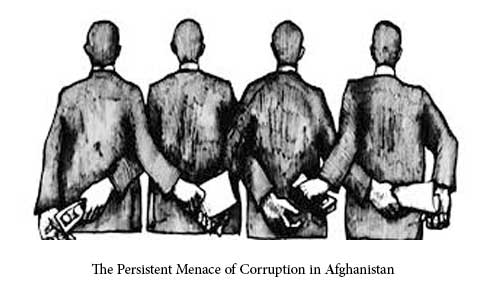Geneva Conference on Afghanistan last week vowed to provide the country about $12 billion in aid for the next four years. Though the amount is not as much as promised in the Brussels Conference in 2016, it is sufficient to provide the most necessary assistance to Afghanistan as the country is standing at a crucial juncture of its history. The amount is also considerable in the light of the difficulties being faced by donor countries themselves amid COVID-19 pandemic. Interestingly, an imperative condition that has been set by the donors is that the Kabul administration will make efforts to fight corruption. Though the Kabul administration has pledged to fight graft, it will be interesting to see whether genuine efforts will be pursued, given the fact that such promises have been made by the governments in Afghanistan a couple of times earlier as well.
While announcing the commitment of $12 billion by the conference a success for Afghanistan, Shamrooz Khan Masjidi – the spokesperson for Afghanistan’s Foreign Ministry said in a statement, “Afghanistan feels committed and pledges for the sake of the nation, for the sake of God, for its future self-sufficiency to fight against corruption… We want to work for good governance and for transparency and give accountability to the international aid.” The pledges by Kabul administration seems promising, without any doubt; however, turning the pledges into practicable measures and then pursuing them with commitment and honesty require exemplary efforts.
As things stand, the hopes for improvement are meager. In the 2nd week of November, 2020, the United States Special Inspector General for Afghanistan Reconstruction (SIGAR) – John Sopko – in a letter to the US Secretary of State, US Secretary of Defense, and the US Agency for International Development (USAID) said that the Afghan government has not taken any serious measures to fight corruption and that all its actions have been on paper. The letter not only doubted the high-level Afghan leadership’s commitment to fight corruption, it also highlighted the loopholes within the existing system to hold influential people accountable for their deeds. The letter substantiated, “Abdul Hamid Sharifi, a Member of Parliament, on charges of attempting to smuggle 200,000 euros into the United Arab Emirates; he was later released based on article 102 of the Afghan constitution and his case was referred to the Afghan justice system. This case demonstrates that the Afghan government’s failure to follow up on the March 2020 consultation session that identified article 102 as an immunity loophole perpetuates the culture of impunity for powerful individuals.” The letter even suggested the organizers of Geneva Summit to prioritize transparency of their aid to Afghanistan; which they did. Now, it is imperative to see how the authorities in Afghanistan respond to this crucial issue.
Though abhorrent in nature, the fact remains that in Afghanistan the control structure itself is active in sowing the seeds of corruption. In this respect, the administration and the authorities that should be in the lead to curb this threat, have used it for their personal gains. Since former president Hamid Karzai’s first tenure, the government authorities have always been involved in major corruption scandals. However, they have never been brought to justice. Unfortunately, a few of the government officials instead of mending themselves have accused international supporters for ignoring corruption and even supporting it.
Consequently, the regional and international allies have continued to demand that Afghan governments should take serious steps to end the growing corruption, but in this regard, the results have yet to be achieved. The fact is that the donor countries and international organizations have provided billions of dollars to Afghanistan, and they are entitled to make sure that the money intended to benefit the Afghan people must be spent transparently. In this respect their concerns have been valid; however, that have not been translated into tangible measures that could control this menace. The result is that a large portion of the aid money has already been misused, which has resulted into a mammoth opportunity cost.
In the meantime, Afghanistan’s supporters have lost trust in delivery system in the country and even the Afghan authorities. Some even lament at what has been accomplished after almost two decades of investment and hard work. One of the reasons why the international community is hesitant to increase their support for Afghanistan is, of course, corruption. As mentioned above, the current support for Afghanistan is also conditional on curbing corruption, also mentioned in their joint declaration.
However, the fact remains that corruption has penetrated deep within our social life and has become our second nature. One of the most heinous realities is that the people do not view it as a social evil. Therefore, most of the people do not strive to stand against it because they know that it will be ultimately rewarded.
Home » Opinion » The Persistent Menace of Corruption in Afghanistan
The Persistent Menace of Corruption in Afghanistan
| Sajjad Aasim

